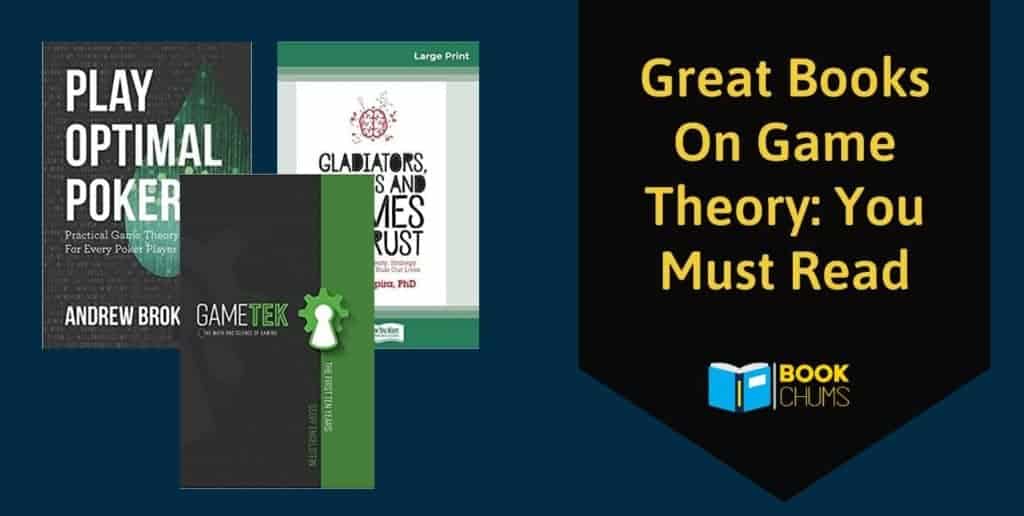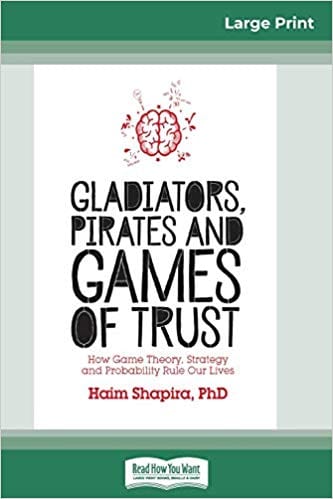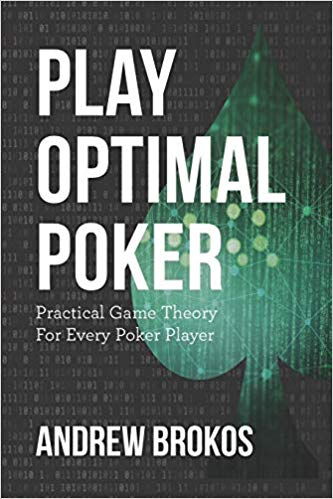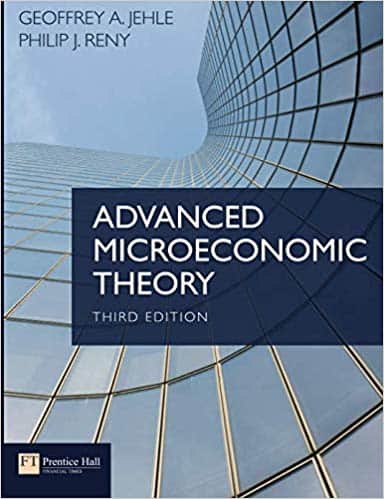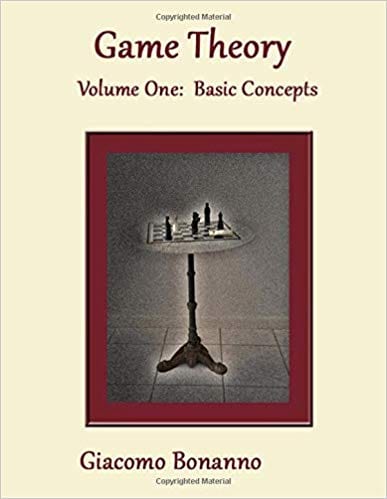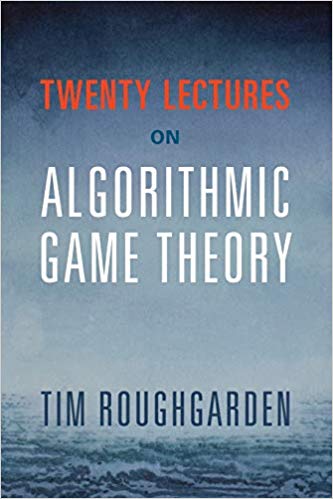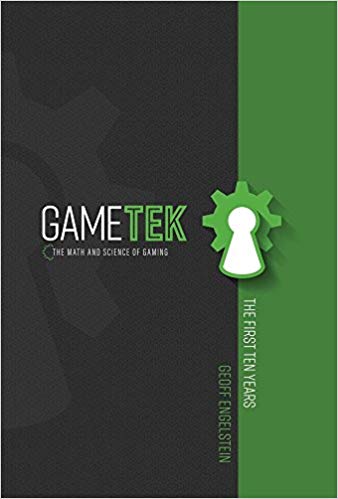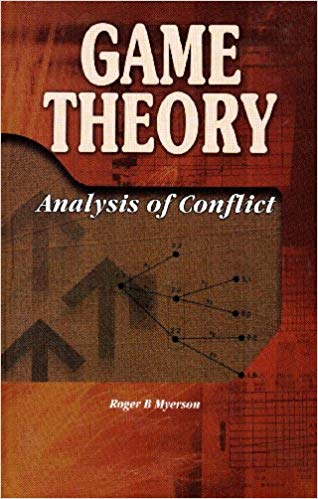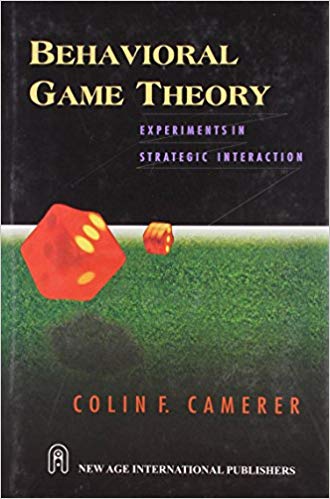The game theory basically helps its followers to accommodate mathematics models based on strategic interactions that are used among rational decision-makers. It shows how a player thrives under pressure, and how some of the decisions made by the player aren’t always rational.
There are certain books that introduce people to game theory. These kinds of books help their readers in developing a particular trait to be utilized in real life. They gain knowledge and a certain way of handling situations. They help us understand game ethics and apply them to our reality.
8 Best Books on Game Theory
Gladiators, Pirates, and Games of trust
This book is written by Haim Shapira. In this book, the author explains how the Game Theory can be used in our day to day lives and why is it this important. It is loaded with a number of anecdotal records that are humorous and even provides certain examples of how the game theory affects our day to day life.
It focuses on the fact that game theory is a mathematical model that explains the decision-making process and it accommodates the fact that the role of every player is to maximize their profit. In this case, profit can be seen in a number of ways. And also, the real-life roles of these “players” may be different too. They can be enemies, friends, politicians, or any other type of real-life relationship. They can even be grouped in a collective manner.
A pretty obvious issue with anyone who tries to accommodate the game theory with the real-world is that the player’s knowledge of the possible gains of his opponent. Sometimes, the player himself isn’t clear about his target or the moves that can be profitable to himself. This is where this book comes in handy. The author uses a lot of examples to educate the reader about game theory.
It teaches the reader how to think of every possible outcome of a situation so that there is no surprise in the end. It introduces us to the basics of modern negotiation and the Nobel Laureate John Nash. It helps you develop and gain trust over yourself.
Play Optimal Poker
This book is written by Andrew Brokos. It talks to the huge number of people, who think that game theory is impossible to understand and it is an abstract concept. The author even discusses how this can be implemented in a real-life poker situation.
It looks deep into the eyes of bluffing and how a player can simply slide through a situation using these easy to follow steps. The author takes us to a step by step overview of the game and teaches us when and where to invest our times and resources. He provides great insights into the game and wonderful methods to implement them in real life. It tries to teach us when to raise the stakes and when to lay low.
It helps us exploit even the simplest of mistakes without a doubt and makes the opponent regret even a single cross of blades. Once completely familiarized with the game theory, a player gains unbeatable confidence which helps him/her to excel at any situation presented in a real-life poker game. It helps the player in taking fast decisions when on the table. It even explains how one can exploit their opponent’s aggression and even passivity.
It gives a clear insight into the art of manipulation. Also, this book is praised worldwide for the brilliant insights that the author has to share. It shows us how to read our competition as well as trick it into losing their hand even if they are about to win.
Advanced Microeconomic Theory
This book is written by Geoffrey A. Jehle and Philip J. Reny. It focuses majorly on how to use theoretical knowledge in the practical world. It simply defines how the process of making decisions based on your intuitions for whatever the outcome might be.
It is loaded with examples and is fully helpful in getting any reader to the true knowledge he/she needs. It provides a basic introduction to microeconomics which helps the reader in getting a general insight into the field of decision making, by the use of mathematical models that can be implemented in the real world. It is a brilliant book for anyone who wishes to strengthen their knowledge about the topic or even to get an overview.
It goes through the most basic topics, like preference relations, producer theory, demand theory and applications, choice under uncertainty, monopoly, game theory, partial and general equilibrium, and contract theory. So, as you can see, this book isn’t solely focused on game theory and only talks about a part of it. It’s still a great book to go through but if you need a more comprehensive book that concentrates on game theory as a focus, then you must choose some other book.
It gives a brief look into a game theory which is why this isn’t my first choice. But it still covers the topic in some great quality, so it won’t be the worst idea to go through it once. An advantage to this book is that it covers a great number of topics and aspects to go through which gets the reader a better look into the real-world subjects. It also comes with a workbook to help the reader in grasping the knowledge in a better way.
Game Theory: Volume 1
This book is written by Giacomo Bonanno. This book is part of a series of two books that help their reader dive into Game Theory. While the second book talks about the more advanced topics, as mentioned on the cover itself, the first volume gives an introduction to the most basic concepts of game theory.
The first part is also divided into two parts and the basic reason for the division of these books is that the first part completely accommodates game with ordinal payoffs while the second part discusses the information for games with cardinal payoffs. Although a similarity in both the parts is that, this book discusses both, dynamic games as well as strategic-form games.
Also, this book is fairly short and carries a lot of illustrations to help the reader in understanding the material better. Another notable thing about this book is the fact that it can be used as material for self-study as well as an undergraduate course that focuses on game theory that accommodates a graduate-level class of the first year. Its readability is great as it is written to accommodate even the students with the most basic education like that of the high school level.
Each chapter ends with a number of exercises along with their answers in complete detail. This volume of this two-book series contains around 90 exercises.
Twenty lectures on algorithmic game theory
This book is written by Tim Roughgarden and Noam Nisan. It concentrates on how the constant engagement of economics with computer science for the past fifteen years has given rise to the algorithmic game theory which is a new field into the pre-existing field. It tackles a lot of problems that are directly linked with modern computer science.
It accommodates online advertising, resource allocation under large networks, etc. that may or may not involve the interaction of a large number of parties. Similarly, game theory and economics provides the reader with simple problem-solving models and their complete information without a single issue. This is one of the best books to accommodate computer science with a brilliant field of economics.
The basic idea of this book originates from the author’s course lectures from Stanford University which specializes in algorithmic game theory. Also, it is useful for readers of all types as the authors have tried their best to accommodate the material in the easiest way possible. It even includes certain case studies to help in a better understanding of the subject matter.
Gametek
This book is written by Geoff Engelstein. It was written to accommodate game theory and to connect games to science, mathematics, and psychology. It has grown into a world known book and is appreciated by a large number of people worldwide. One thing that is the best about this book is the vast amount of pictures included in it.
It contains information that ranges from the most basic games like Rock, Paper, Scissor, to more complex games like Buddha’s Forbidden Games. And it is appealing to many types of readers along with players and game designers who wish to learn more about simple concepts like these. The author talks about all aspects of different games in a quite interesting way to help the reader in a great manner.
The author discusses games, as well as their practical application in the real world. Also, this book lands great insights into a game theory which will definitely benefit any and every user in a pretty easy way.
Game theory
This book is written by Roger B. Myerson. It is a basic introduction to game theory as it is evident from the cover page of this book. It covers classical as well as combinatorial aspects of mathematics for the game theory. The author has provided a quite comprehensive overview of the subject along with some common reasoning methodology.
The very first four chapters discuss the basics of combinatorial game theory, accommodating the basics of mathematical induction and game trees. It goes on to discuss the games of Nim and Hackenbush. These games are the roots of the simple explanation and proof of the Simplicity Principle and the Sprague-Grundy Theorem.
The eight concluding chapters of the book follow a more imaginative approach to the mathematical sector of the classical game theory, accommodating von Neumann Minimax Theorem, the Nash Equilibrium Theorem, and the zero-sum games. This also includes a couple of great topics to attract readers like Arrow’s voting paradox, the folk theorem, and many more.
This too is basically a textbook as the basis of an undergraduate mathematics class. It has a satisfactory amount of information and enough methods to make the reader familiar with any content in a pretty easy way.
Behavioral Game Theory
This book is written by Colin F. Camerer. It starts with acknowledging the fact that people ignored the basic concept of normal people playing a game and instead they focused upon the playing techniques of geniuses who are emotionless during the game. This book discusses the strategies and simple psychology of the mediocre players at any game.
This is the first book that discussed the accommodation of mediocrity among the best players available. It is well worked and revised through conducting personal experiments in order to make simple mathematical theories of limited strategizing, learning and reciprocity, which in turn helps people in understanding the thought process of a large number of parties.
Instead of taking a formal approach through this book, the author takes an informal and friendly approach towards the readers and helps us in a great way to understand the information mentioned in the book. He includes the older information along with the most recent information with the help of recent studies and examinations being carried out.
It discusses how the state of mind affects all our decision making processes in a quite direct way. It discusses the part played by morality in the entire process. It helps the reader understand the basic concepts of bargaining and bluffing to mess with their opponent’s mind which makes this one of the most recommended books on the market right now. It creates a pretty literal example of how game theory is so much similar to real-life situations and how it can be used in a simple way.
I hope I was able to help you find the best books on game theory to read. These books are my personal recommendations and I’ve read most of them thoroughly myself. The best knowledge of the subject matter can be guaranteed through these books. If the content was helpful, please leave a like or comment on the post.

